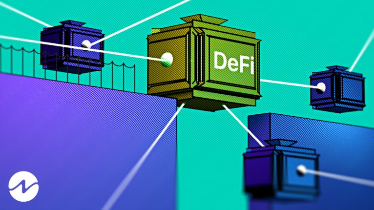DeFi on Bitcoin has a promising future, regardless of whether one uses Rootstock, Stacks, DeFiChain, Portal, or any other solution. More and more apps, products, and services may be created by programmers every day. In the cryptocurrency market, Bitcoin is still the most popular choice for both retail and institutional investors.
Long-term BTC holders may profit from DeFi’s growth and diversification, allowing them to put their money to work. In addition, they will be able to do so while using the world’s most secure blockchain.
Several big DeFi initiatives are now experiencing troubles, which has led to a great deal of anxiety among users. Withholding transactions and withdrawals from multi-billion dollar enterprises are a huge concern. Portal, a self-hosted Layer 2 wallet and DEX on Bitcoin, demonstrates that things may be done differently.
Present DeFi Issues are a Big Deal
Celsius, BlockFi, and Voyager Digital have all suffered setbacks in 2022. Users can’t access any of these services, with a total value locked between $1 billion and $5 billion. A user’s ability to make deposits, trade and withdrawals is restricted.
Trusting centralized suppliers that claim to be vital gateways to decentralized finance is a no-brainer. Even if a platform claims to be able to provide larger returns, it’s best not to put your money in their hands. As a result of the latter factor, some organizations have become careless, resulting in dangerous plays with consumer cash that have cost them money.
Custodial accounts keep people from accessing their money when a company’s actions don’t pay off. In a decentralized financial system, the end-user has full power, privacy, and responsibility. Modifications on any of these three foundational elements have resulted in critical points of failure that never should have occurred.
For example, Portal, one of the numerous solutions developed on top of the Bitcoin network, offers customers a self-hosted wallet and a DEX to make atomic trades, among other services. Staking and lending options are also being developed as part of the team’s DeFi strategy.
How Important Is Self-Custody?
The goal of decentralized finance is to empower users rapidly, safely, and confidentially. There is no requirement for third-party custodial access, and consumers may freely exchange and utilize their crypto assets. It is possible to retain anonymity while accessing open and transparent marketplaces by building on secure blockchain networks. No one else can access your secret keys or compromise your privacy. Furthermore, users will never be blocked access to their funds.
Additionally, being a Layer 2 and 3 solutions atop Bitcoin, Portal enables private and off-chain execution of smart contracts. This is a significant benefit. However, in the classic sense, the technology can facilitate asset issuance, swaps, liquidity and more. Zero-knowledge cross-chain trading and communication are also possible thanks to the Portal mechanism. That is all achievable owing to the inherent security of the Bitcoin network and without the need for bundled coins or third parties.
It’s reasonable to assume that the inclusion of these characteristics would lead to a decrease in both speed and efficiency. This is not the case since the Layer-2 approach has the same execution speed as a centralized exchange while still providing anonymity. DeFi solutions with self-custody give significant benefits without the hazards of dealing with centralized middlemen, in addition to the above.
Since the beginning of the DeFi era, several innovative non-custodial protocols have been developed. Aave, Alpha Homora, Bancor, and Interplay are just a few of the many notable ones. However, interest in Bitcoin-based initiatives is on the rise across various blockchains. As a result of Stacks’ smart contract layer and Rootstock’s EVM-compliant layer, self-custodial solutions on the Bitcoin blockchain offer great potential. These apps would also benefit from the most secure and immutable network.
There is no need to depend on unreliable networks since strong solutions are being created on the world’s largest and most secure blockchain, Bitcoin.

